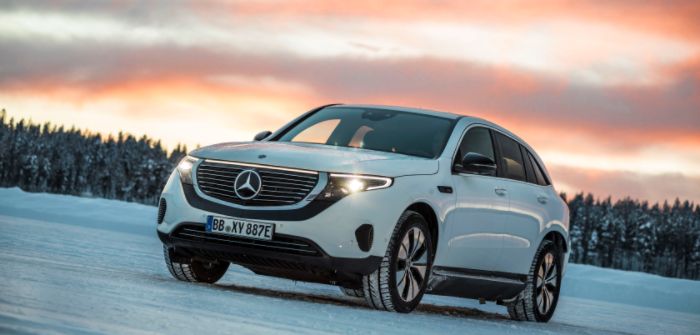The soon-to-launch Mercedes-Benz EQC is undergoing winter trials in Sweden, with a focus on the thermal management of the battery and interior, recharging in cold conditions, and handling safety, traction and recuperation on ice and snow.
After digital tests and bench tests, the 200 or so prototypes and pre-series models of the EQC will have covered several million kilometers on four continents. The test program includes over 500 individual tests in Europe, North America, Asia and Africa, and over the course of three winters and three summers, the EQC will be subjected to temperatures ranging from -35°C to more than +50°C (-31° to +122°F). These tests are conducted for final verification before starting customer deliveries of the EQC.
Testing is taking place in Arjeplog, on the roads and on specially prepared test tracks. In contrast to the previous winter trials of the EQC, only the final details are optimized and verified this time. This includes fine-tuning and testing of aspects that present a particular challenge in electric vehicles, including: cold-starting characteristics and thermal comfort; pre-entry climatization; range in customer operation; and the negative effects of ice and snow.
The testing is also looking at: interaction between the electric powertrain and ESP intervention; the operating efficiency of the sensors in icy and snowy conditions; and how well, for example, the motor compartment and axles react to penetrating ice or snow.
The EQC is the first Mercedes-Benz model under the new product and technology brand EQ. Thanks to the newly developed drive system with a compact electric powertrain (eATS) at each axle, it has the driving characteristics of an all-wheel-drive. An 80kWh (NEDC) lithium-ion battery supplies the energy and can achieve an electric operating range of over 450km (280 miles). It is categorized as a crossover SUV.


